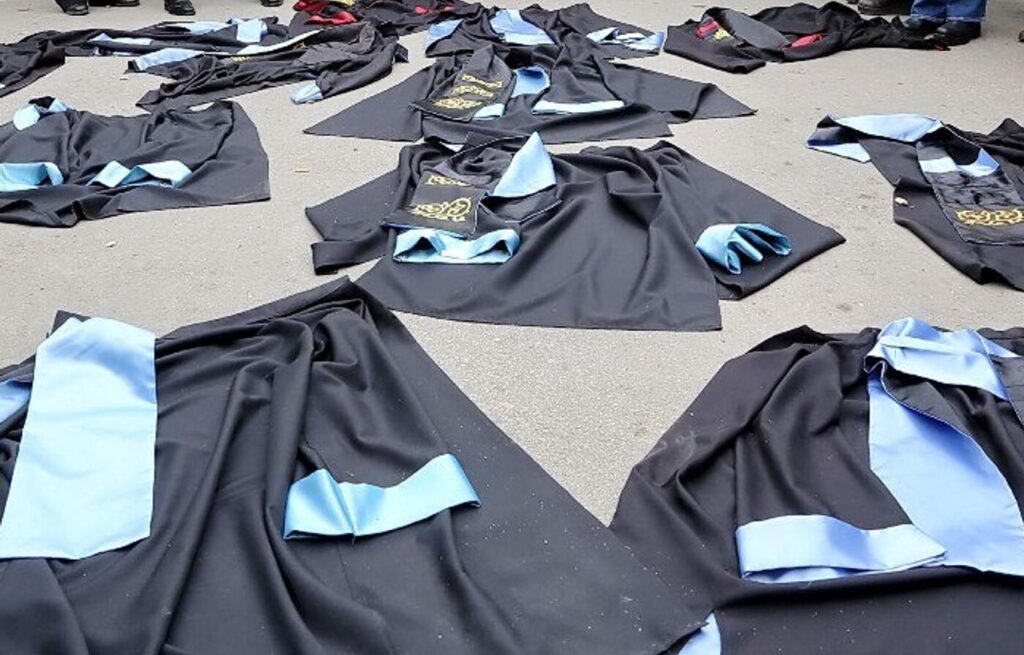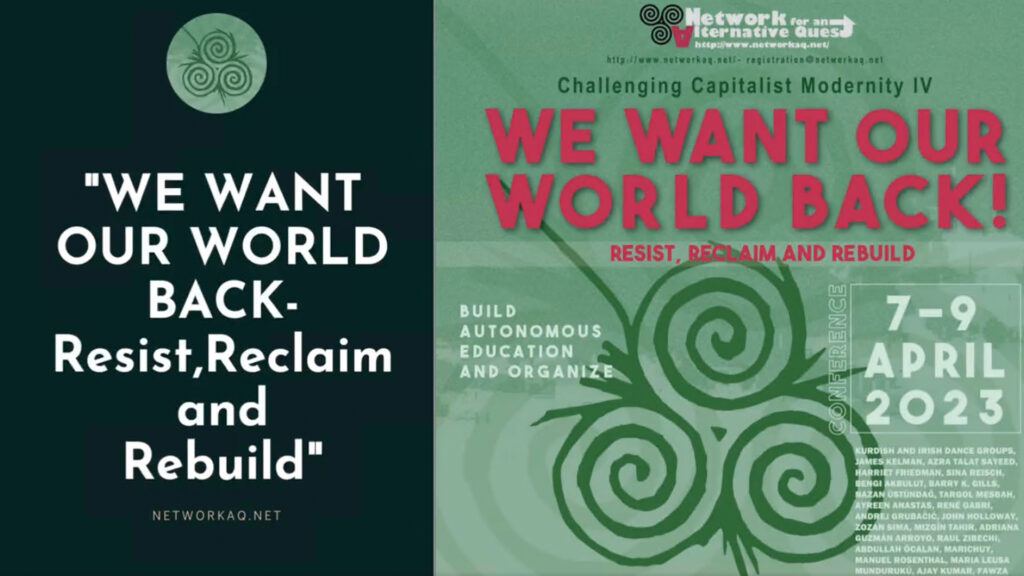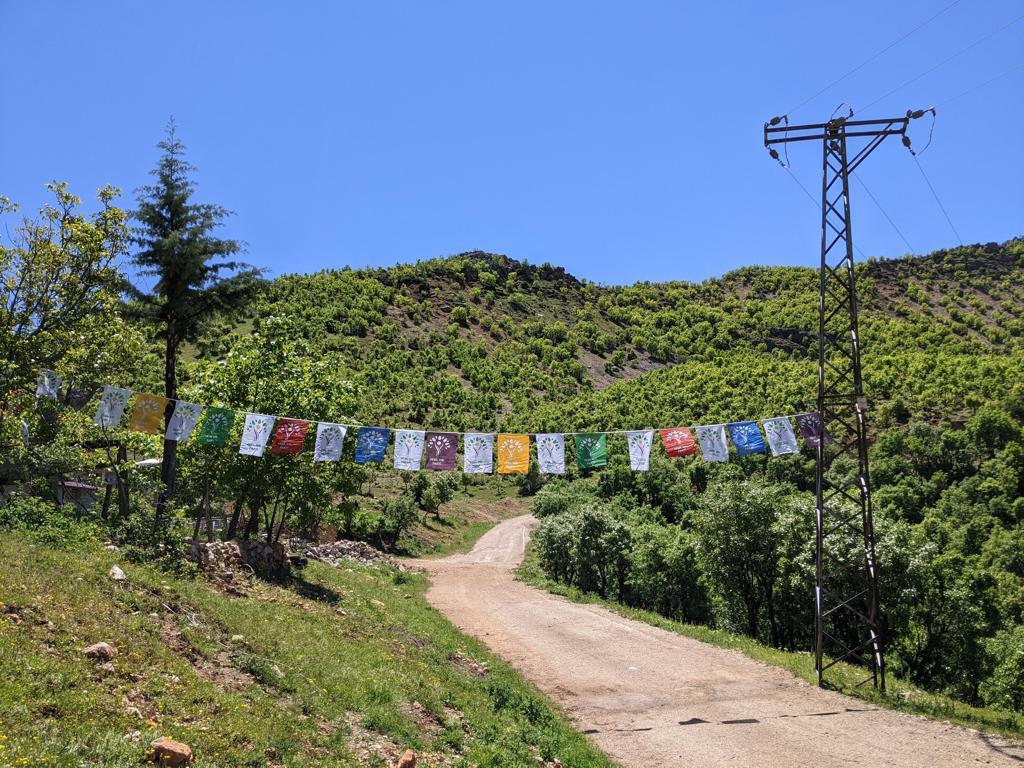A group of international academics, lawyers, trade unionists and activists travelled to Turkey’s Kurdish-majority southeast as election observers to witness the country’s epochal elections to be held on 14 May. In a series of articles to be published every day by Medya News leading up the elections, a member of the UK delegation, Emma Müller, shares the international election observers delegations’ findings from the ground.
Emma Òr
The education system is an important field of political struggle: schools train future voters and universities produce knowledge that is considered valid and legitimate. Though states mostly use the education system to maintain power, schools and universities also aspire to be spaces of freedom and social and political responsibility. The Kurdish resistance against the authoritarian Turkish state is not different, the struggle is intensively taking place in the field of education.
Academics for Peace

A lot of activists we meet, including candidates, ordinary party members, and community organisers are former teachers who have been criminalised by the regime and dismissed from their work as educators. Sevilay Çelenk, who runs for the Yeşil Sol (Green Left) Party in the Diyarbakır (Amed) region, used to be a professor at the University of Ankara. She has been persecuted by the Turkish authoritarian state for her activities within the Academics for Peace (Barış İçin Akademisyenler, BAK). Academics for Peace were publicly supporting the happening of the peace process from 2012. As the peace negotiations collapsed in 2015, Academics for Peace campaigned against the human rights violations and the military attacks of the Turkish government against Kurdish people and demanded the reopening of the peace negotiations. As with others active in the opposition and the civil society, the Turkish state responded with heavy repression.
All of the thousand academics from around 80 Turkish universities who signed the declaration “We will not be a party to this crime!” were dismissed from their work and were investigated under the anti-terror law. Over half of them received prison sentences, from 15 months up to 3 years. Though a vast majority of the Academics for Peace were eventually acquitted in 2019 thanks to the ruling of the Constitutional Court, the Government’s persecution still had a devastating effect on the lives of the involved academics and their families. Despite the dismissal verdict of the Constitutional Court, Erdogan’s government issued a decree forbidding Academics of Peace from work in any public or private education institution and in public services. Though the decree does not legally apply to other types of work, no company or organisation dares to employ people ostracised by the authoritarian regime. As a result, Academics for Peace and many other educators that have resisted the Turkish authoritarian state have been out of work, struggling to support themselves and their families.
Sevilay Çelenk pointed out that the behaviour of private universities in this time was particularly striking. The private universities did not stand up to support and defend their own academics as one might expect. On the contrary. Even before any results of the criminal investigations were reached, the private universities rushed to dismiss those involved with the Academics for Peace. Turkish private universities are neoliberal institutions providing corporatized education, similar to those we see in the US and increasingly in the UK. The activity of corporatized universities mostly lies in selling for-profit types of education and their research strongly focuses on topics dictated by corporate interests. Such a university clearly does not have much incentive to care about freedom or democracy.
“We want our world back!“

To be sure, public universities and/or classical universities with less corporate influence also have a limited capacity for resistance. The State can at any time wrest control of the university structures. In Turkey, the authoritarian state has taken over a direct managerial control of the State universities. Previously democratically elected rectors have been replaced by rector-trustees installed by the government. Rector-trustees implement the State’s policies including firing of academics targeted by the regime and conducting disciplinary punishment of students that protest against the authoritarian state.
Importantly, the State’s interference with universities is not limited to the Turkish context. A month ago, the University of Hamburg withdrew the provision of the university space that was originally booked for the conference “We want our world back!“ organised by Students’ union AStA of the University of Hamburg in cooperation with international Kurdish groups. The university rushed to give up its autonomy into the hands of the German and eventually Turkish state once the German intelligence service came up with accusations of the organisers to be criminal and extremist organisations. Ebru Günay, a current MP for HDP in the Turkish Parliament who presented at the conference, said that the university’s ban was because of her presence and that the Turkish state will do anything to persecute the opposition.
Criminalisation and dismissals of teachers combined with constant unsystematic changes

Erdogan’s government has been cleansing the educational system from anything but regime-aligned influence at all levels, not just universities. Yeşil Sol Party Diyarbakır Co-spokesperson Abbas Şahin was a teacher and a co-chair of a teacher’s union. Like many others, he has been persecuted. Teachers that are active in the dissent against the authoritarian Turkish regime or even just take a stand on the issue, are criminalised – investigated as terrorists, dismissed from education work, many are sentenced and imprisoned. Even if their cases are dropped, former teachers are not allowed to return back to teaching and have effectively no chance of finding any other work. The dismissed teachers sustain themselves thanks to the support of their families, the community and the teachers’ union. The teachers’ union provides legal as well as financial support. Though the financial contributions from the unions are small, they are still a significant help. The situation is particularly hard for teachers who have their own families to support.
It is not only the politically persecuted educators and students that suffer. Sevilay Çelenk and Abbas Şahin told us that the government has decimated the Turkish education system as a whole over recent years. The criminalization and dismissals of teachers combined with constant unsystematic changes to the education management and curricula that are implemented to meet the needs of the authoritarian regime have had a severely damaging effect on the quality of education in Turkey.
Yeşil Sol has radically different plans for the Turkish educational system. They promote an autonomous model of university based on participatory democracy and gender equality. In their program, Yeşil Sol promises to establish Democratic University Assemblies where all constituents of the university will have an equal say and decision rights. People engaged in university will decide on the matters themselves without the interference of the State, capitalism or other external forces.










